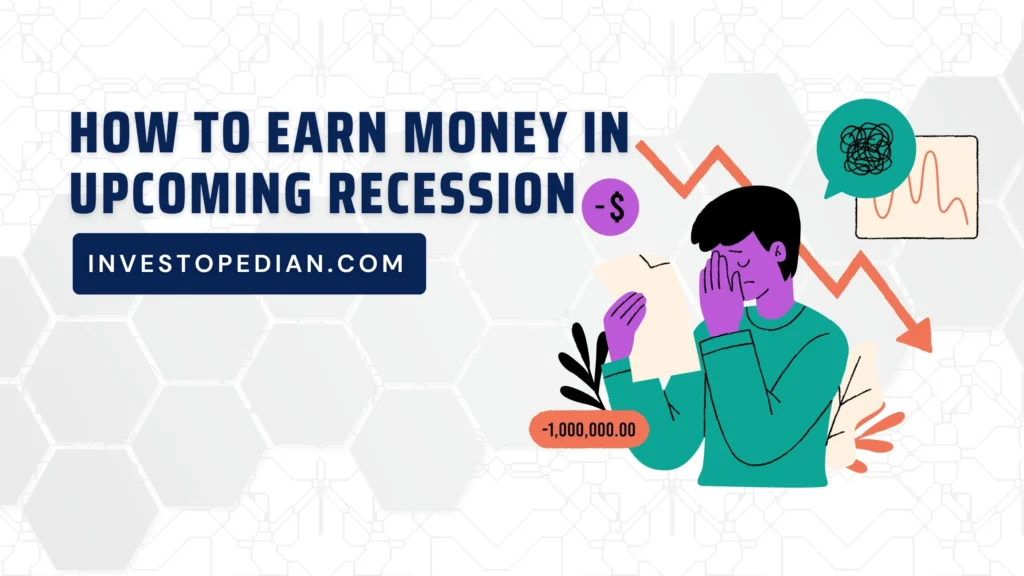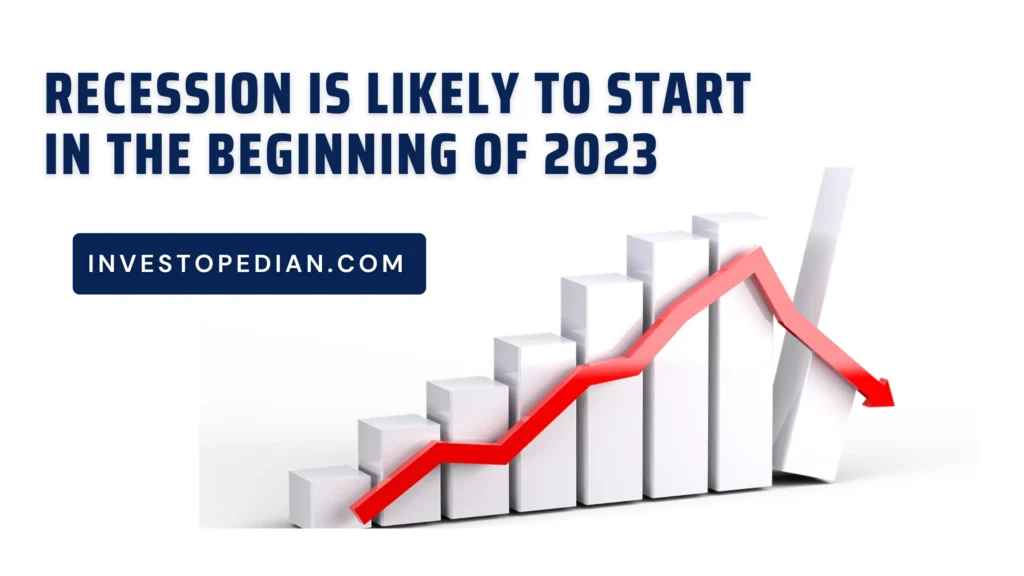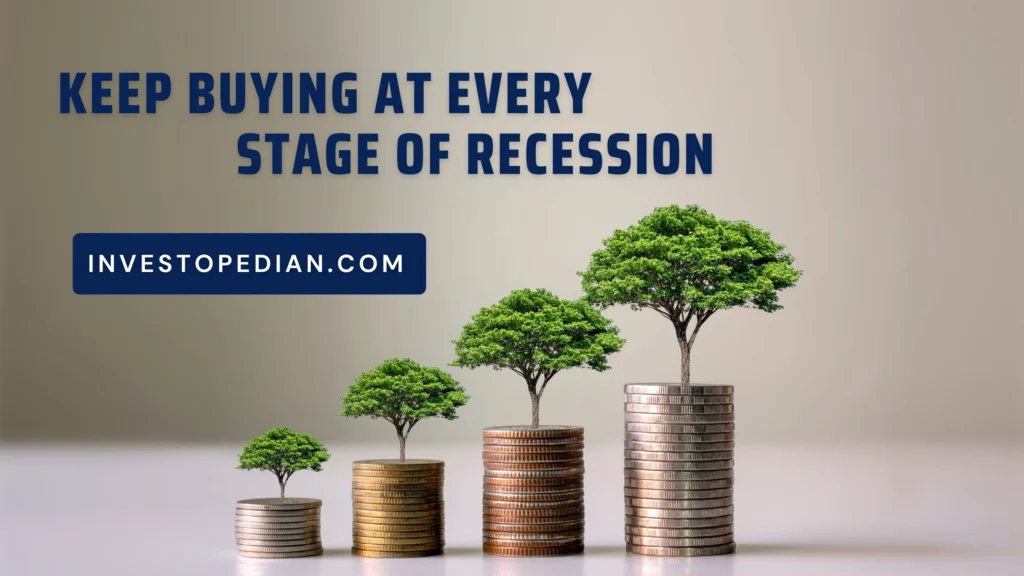Hello everyone, most of the market researchers are saying that United States is at the verge of recession. We might very well be seeing the beginning of a 2023 with a bear market in fact the slowing inflation. It was just reported that more than a third of small businesses couldn’t afford to pay all of the rent in October. 50 of employees expect potential layoffs and the Federal Reserve is only three weeks away from another rate hike with more expected to follow that’s why with everything going on from declining home sales record, consumer Debt and rising rates.

There is a historically proven way to invest if you want to profit from a market exactly like this. Even when Michael burry says that “you have no idea how short I am in”. Let’s discuss exactly what’s happening the preventative steps that you could take ahead of time to make as much money as possible and how we could begin to see a terrific buying opportunity coming very soon to a market near you.
It’s first important to understand what type of downturn that we could see because despite what most people think there is a big difference between how you would approach a recession versus depression versus an all-out stock market collapse. To start we should talk about the elusive recession even though this is simply defined as two consecutive quarters of declining GDP the deeper you begin to look the more you begin to realize that this affects a lot more than just the headlines of CNBC and it’s surprisingly a lot more common than you would expect. After all since the 1940s we’ve seen a total of 18 recessions the longest lasting 18 months the shortest being about two months during the covet shutdown and since 1900 the average recession tends to last about 10 months.
The economic policy Institute found that throughout recessions we tend to see complete contraction throughout our economy including number one job losses as companies anticipate lower earnings they’ll seek to reduce their costs and that usually begins with laying off employees to reduce their overhead too because of that we also tend to see declining wages. A study in 2009 found that the average worker saw a six to seven percent income loss for each one percentage Point increase in the unemployment rate and even after 15 years the loss is still two and a half percent and three. There tends to be less private investment just like businesses scale back individuals also tend to make smaller safer Investments and that in turn leads to less economic growth and less innovation in the future.

However, when it comes to making money during a recession here’s the good news or I guess the bad news depending on how you look at it. A recession by itself has very little correlation with the stock market in fact from 1869 through 2018 there have been a total of 16 recessions that a positive stock market returns and off those positive recessions the market went up an average of 9 0.8 percent during a time. The GDP declined by three percent or basically in other words out of 30 recessions half of them had no correlation with stock values whatsoever but on the other hand when the market does go down we see an average drawdown of 29.2 percent of which it’s pretty obvious that we’re on the same trajectory so how bad could it get.
Well on a broad scale these are the types of declines that you should be made aware of when it comes to Building Wealth.
Stock Market Correction
The first is what’s known as the stock market correction which is defined as a minimum 10 drop in price. now normal volatility throughout the market is extremely common in fact since 1920 the SP 500 has on average seen a five percent pullback three times a year so random fluctuations happen all the time. This is also somewhat the case with Market Corrections which happen on average every 16 months with a drop of 15.6 percent and an average length of 71.6 days. So it’s absolutely normal and it’s a sign of every Healthy Market when you see a pullback as a part of a regular business cycle.
Bear Market
A bear Market which is defined as a drop of at least 20 percent and this is where we are now according to the data this typically happens every seven to ten years and when it hits, it hits hard. During a bear market stock drop an average just over 33 percent and it falls over a period of 363 days but in terms of how bad things could potentially get after that we have the worst of them all a stock market collapse. Drop of at least 40 percent or more throughout the entire market and throughout last 120 years it’s only happened three times. Now of course 2020 got very close to that but the FED stepped in and here we are today that means that an actual stock market collapse is uncommon but it’s not impossible and if Jamie Dimon is correct, it might be closer than we think. That’s why it’s important that you’re actually able to use this information to make money.
Stay employed during the recession
In order to do that you first have to understand which investors will be the biggest losers to start if you want to have the best chances of making the most amount of money possible throughout these next few years you will need to do your best to stay employed the fact is when consumers earn and keep less they spend less and when companies see less demand they begin to scale back and usually employees are the first to get cut. In fact just a quick Google search for Mass layoffs gives you dozens and dozens of companies who are beginning to trim their Workforce and as Bank of America warns the U.S economy will soon start losing 175 000 jobs a month that’s why the biggest financial losses will come from those who are unemployed and can’t sustain their income to keep investing in the market so over the next year keeping your job should be the main priority.
Maintain Emergency Fund of 3 to 6 Months
You’re more likely to sustain losses if you don’t keep a three-to-six-month emergency fund. Having this type of emergency fund means you’re not going to have to rely on credit cards to pay your way through an unexpected event, you won’t have to sell your stocks or Investments during a time where they probably declined in value and you’re not going to have to take on high interest rate debt if something were to happen. Using a combination of high yield save savings accounts that pay between 2.5 and 3.75 percent as well as short-term three-to-six-month treasuries that are paying about 4 to 4.3 percent that way no matter what happens one will be earning something on uninvested money and something to fall back on.
Keep buying at every stage of Recession

The investors who statistically do the worst are those who do not continue buying into the markets when it’s down. The most basic level Studies have shown that the average investor just barely manages to outperform inflation with a 20-year annualized return of just 2.9 percent. Well the vast majority of investors follow the principle of buying high and selling low, a perfect example of this is what’s known as the Magellan fund. This is the world’s best known mutual fund which saw record high growth under the management of Peter Lynch from 1977 to 1990 but even despite their incredible success having outperformed the market by a long shot for more than 15 years it was reported that the average investor lost money under Peter Lynch’s tenure. During a period where the fund returned around 29 annually the reason well during those years it experienced times of explosive growth and devastating losses so when investors only bought the excitement and only sold once they had lost money they locked in their losses and missed out on all the subsequent growth.
Reasons to not Invest
So now that you know what to avoid. These are the strategies that are statistically proven to make you the most amount of money possible and if you could follow just a few basic steps you’re going to be that much closer to making riches in a recession first. When it comes to Building Wealth it’s important to recognize that there’s always going to be a reason not to invest. As long as you invest, things will never be perfect and there’s always going to be a reason why the market could crash so it’s usually best to ignore it and keep investing.
Investing is not a Game
Investing is not a game I hate to say it but when you really get down to it, investing is boring and it’s not supposed to be fun. I know it sounds weird to say because for me investing is an absolute blast but for most people it’s not supposed to be that way and it’s not a sign of a healthy market when people are trying to gamble their life savings to buy a Tesla model. At a certain point you have to remember that if you’re trying to beat the markets you’re either taking a carefully calculated risk or you’re gambling and unfortunately the line has gotten completely blurred over these last few years because of overconfidence.
Also read:Homeowners Insurance vs Home Warranty.
Overconfidence
Overconfidence will destroy your portfolio from everything. The moment you think that you’ve had it all figured out and can be can beat the market is the moment you’ve lost because of that it’s best to recognize that the less you know the better you’ll probably do because you’re not going to over complicate everything. Every single study has shown that the best strategy possible is just a dollar cost average and do an index fund and do nothing for 20 years that’s it but almost nobody does it because it’s really really really boring.
Hence the final conclusion is to stay employed and keep making money, don’t panic sell, don’t speculate on stupid investments and buy a wide range of assets.